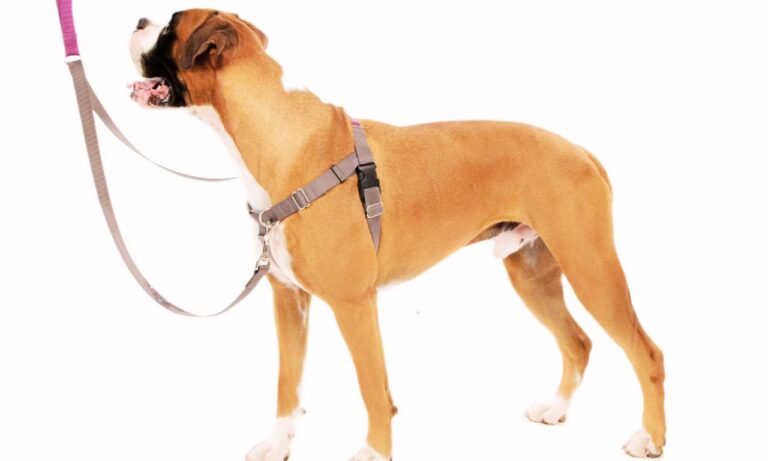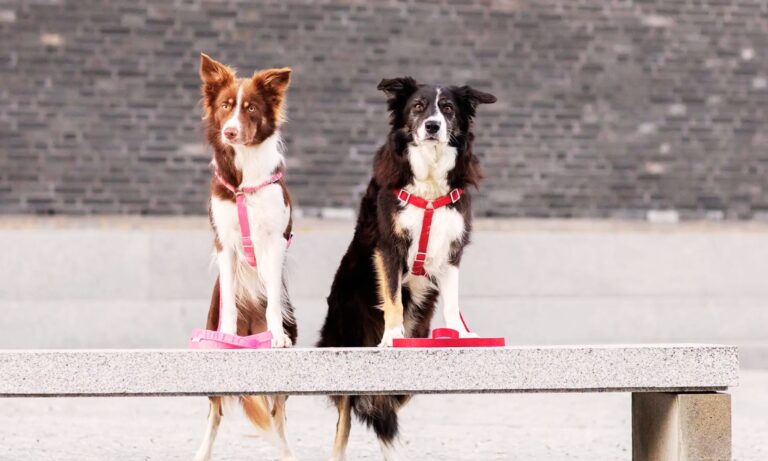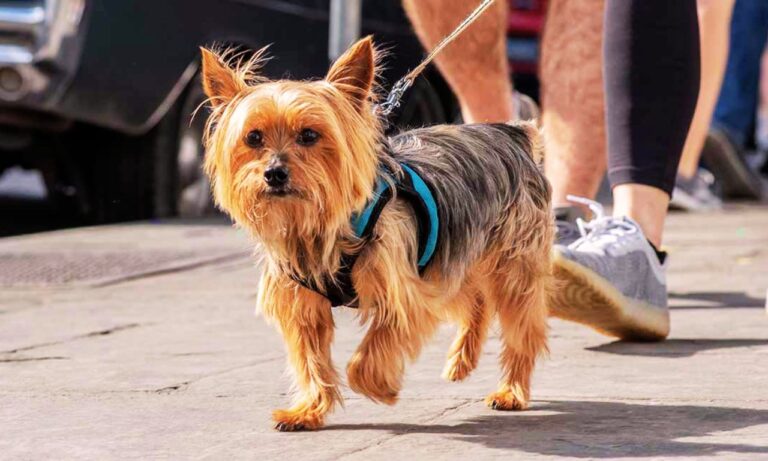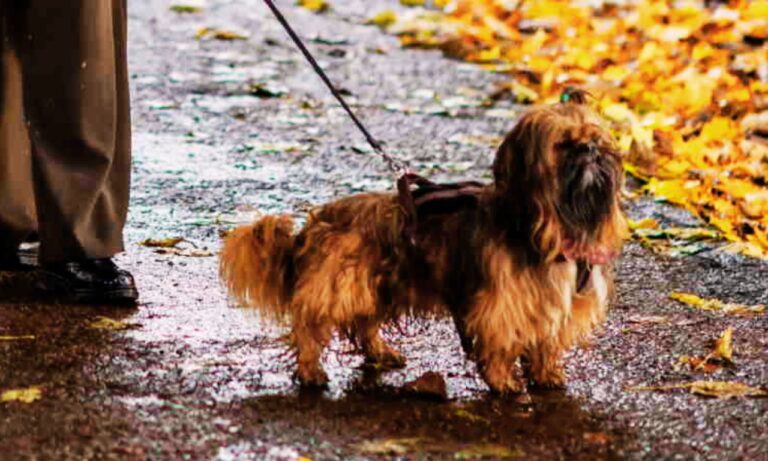| Summary: Kangal dogs are not inherently aggressive but are highly protective, particularly of livestock. Their guarding instincts can lead to aggression if they perceive a threat. Proper training, early socialization, and clear boundaries are essential to managing their protective nature while ensuring they remain well-behaved and balanced. |
The Kangal dog, a breed originating from Turkey, is renowned for its strength, loyalty, and guarding instincts. As one of the most formidable breeds in the world, the Kangal is often questioned for its behavior, particularly regarding aggression. So, are kangal dogs aggressive?
Kangal dogs are naturally protective and territorial, but not aggressive without provocation. GPS dog collars help manage their movements in open or rural areas.
I will explore whether Kangal dogs are aggressive, the factors that influence their temperament, and how owners can manage and train them to ensure they are well-behaved companions.
We will dive deep into the Kangal’s temperament, instincts, and characteristics, with an emphasis on understanding and preventing aggression in these powerful dogs. Learn if Dachshunds need special collars to provide the right support and comfort for their unique body shape.
Blog Highlights
ToggleUnderstanding the Kangal Dog: A Brief Overview
Before delving into the question of aggression, it’s important to understand the nature of the Kangal dog. Known for its role as a livestock guardian, the Kangal is a large and powerful breed, primarily used to protect sheep from predators like wolves, foxes, and bears. Its guarding instincts are deeply embedded in its DNA, and this trait shapes much of its behavior.

Physical Characteristics
- Kangal’s Size: Adult male Kangals typically weigh between 110 to 145 pounds (50–66 kg), with females slightly smaller at 90 to 120 pounds (40–54 kg).
- Height: Males stand around 30–32 inches (76–81 cm) tall, while females are slightly shorter at 28–30 inches (71–76 cm).
- Coat: Kangals have a short, dense double coat that is typically fawn in color with a black mask on their face. The thick coat helps them endure the harsh conditions of the Turkish countryside.
These traits contribute to the Kangal’s role as a protector, and their powerful build makes them capable of defending livestock from large predators.
Quick Fix Table
| Cause | Quick Fix |
| Overprotectiveness | Early socialization, positive reinforcement |
| Fear or Anxiety | Gradual desensitization to new environments |
| Lack of Training | Consistent obedience training, clear boundaries |
| Poor Socialization | Expose to various people, animals, and settings |
| Territorial Behavior | Establish clear authority, control interactions |
Are Kangal Dogs Aggressive? Debunking the Myth
There is a common misconception that all large dogs, especially those with guarding instincts like the Kangal, are inherently aggressive. However, aggression is a complex behavioral trait that is influenced by various factors such as genetics, training, environment, and socialization. So, are Kangal dogs aggressive?
Their calm temperament makes them excellent with families when properly trained and socialized. Pet tech products assist in tracking their nutrition and activity.

In general, Kangal dogs are not inherently aggressive. Instead, they are protective, territorial, and wary of strangers, which are typical characteristics of livestock guardian breeds. These traits can be mistaken for aggression, but the reality is that Kangal dogs are highly intelligent and use their instincts to protect their flock rather than attack indiscriminately.
Protective Nature
- Kangals are naturally protective and will not hesitate to defend their family or livestock from perceived threats.
- They are wary of strangers, which can lead to growling or barking at unfamiliar people or animals.
However, this protective nature does not mean that they are aggressive by default. Instead, it shows their strong sense of responsibility and instinctual guarding behavior.
Discover what size collar is best for a French Bulldog puppy to ensure both safety and comfort during their growing stages.
Factors That Influence Aggression in Kangal Dogs
While Kangal dogs are not naturally aggressive, several factors can contribute to aggressive behaviors. Let’s break down the main causes that can lead to aggression in Kangal dogs:

1. Lack of Socialization
One of the most important aspects of managing any dog breed, especially powerful ones like the Kangal, is socialization. A poorly socialized Kangal may develop fear-based aggression, which can make the dog defensive or overly protective.
- Early socialization: Exposing a Kangal puppy to a variety of people, animals, and environments during their first few months of life is crucial. Without this exposure, the dog may become fearful or overly cautious, potentially leading to aggression when faced with unfamiliar people or situations.
- Signs of poor socialization: Kangals that have not been properly socialized may display signs of aggression such as growling, biting, or charging at unfamiliar people or animals.
Studies show that 80% of aggressive dog behaviors can be traced back to poor socialization during the first year of life.
Solution: Proper socialization from a young age is key. Introducing your Kangal to different people, animals, and environments in a controlled, positive manner can help prevent fear-based aggression.
Aggression in Kangals typically arises only when they perceive a threat to their herd or family. Electronic dog collars provide training reinforcement for managing guarding instincts.
2. Inadequate Training
Training is essential for any dog, especially for large and strong breeds like the Kangal. Without clear boundaries and commands, a Kangal may display unwanted behaviors, including aggression.
- Lack of obedience: Kangals are independent thinkers, which means they can be stubborn when it comes to following commands. Without consistent training, they may not learn proper behavioral expectations.
- Misunderstanding commands: If a Kangal is not trained correctly, it may misinterpret the owner’s commands, leading to frustration and, potentially, aggressive behavior.
Research has shown that dogs with poor obedience training are 3 times more likely to exhibit aggressive tendencies compared to those who receive consistent training.
Solution: Consistent training using positive reinforcement methods is essential for Kangal dogs. Early training with clear, firm, and kind commands will help manage their independent nature and prevent unwanted aggression.
3. Health Issues and Pain
Like all dogs, Kangals may become aggressive if they are in pain or suffering from an underlying health issue. Since they are large, powerful dogs, a Kangal experiencing pain may lash out due to discomfort.

- Health problems: Conditions such as hip dysplasia, arthritis, or injury can cause pain and irritability. A dog in pain may not be as tolerant or patient, which can lead to aggressive responses.
- Changes in behavior: A normally calm and gentle Kangal may suddenly show signs of aggression, such as growling, snapping, or biting, if it is in pain or not feeling well.
A study published in the Journal of Veterinary Behavior found that 12% of aggressive dog behaviors were linked to underlying health issues.
Solution: Regular veterinary check-ups and addressing any health concerns promptly will ensure your Kangal is not suffering from pain that could contribute to aggressive behavior.
Understand if French Bulldogs can wear dog collars and how it affects their neck structure and overall health.
4. Stress and Anxiety
Stress is another factor that can trigger aggressive behavior in Kangal dogs. Like many working breeds, the Kangal thrives on structure and purpose. If they do not have enough mental or physical stimulation, they may become anxious, which can lead to frustration and aggression.
- Environmental stress: Changes in the environment, such as moving to a new home, a new pet entering the household, or even unfamiliar people visiting, can cause a Kangal to become stressed.
- Lack of exercise: Kangals require ample physical exercise to stay mentally and physically healthy. A lack of activity can lead to pent-up energy, which may result in aggressive behaviors, including biting or snapping.
Dogs that are not given enough exercise or stimulation are 5 times more likely to show signs of aggression.
Solution: Ensure that your Kangal receives enough physical exercise and mental stimulation. Regular walks, interactive toys, and training sessions can help reduce anxiety and stress, preventing aggression.
Early training, exposure to different environments, and firm leadership help prevent behavioral issues. Dog training equipment helps maintain their discipline and calm demeanor.
5. Protective Instincts and Territorial Behavior
As natural guardians, Kangal dogs are highly territorial and protective of their families and livestock. While this is an essential trait for their role as guardians, it can sometimes be mistaken for aggression.
- Territorial aggression: Kangals will often guard their home, yard, or property and may display aggression towards strangers who enter their territory. This behavior is not driven by malice but rather by their protective instincts.
- Protective behavior: If they perceive their family or property to be in danger, Kangals may react aggressively to defend them. This behavior is more common in dogs that are not trained to understand the difference between real threats and non-threatening situations.
According to a study conducted by the American Kennel Club (AKC), 70% of aggression in dogs is related to territorial or protective instincts.
Solution: Training your Kangal to distinguish between real threats and harmless situations is crucial. Clear boundaries and commands will help reduce unnecessary aggression.
How to Manage and Prevent Aggression in Kangal Dogs
While Kangal dogs are not naturally aggressive, their temperament can be influenced by several factors. By addressing the causes of aggression and providing proper training and care, you can ensure that your Kangal remains a calm and well-behaved companion.

1. Early Socialization and Training
From a young age, socialize your Kangal with a variety of people, animals, and environments. Training should be consistent and firm but gentle, using positive reinforcement to reward good behavior.
2. Regular Exercise and Mental Stimulation
Kangals need regular physical activity and mental challenges to stay healthy and happy. Provide them with daily exercise, including walks, playtime, and tasks that engage their natural guarding instincts.
3. Veterinary Care
Routine check-ups are essential to ensure that your Kangal is healthy and pain-free. If you notice any changes in behavior, such as sudden aggression, consult a veterinarian to rule out underlying health issues.
4. Create a Calm and Structured Environment
Kangals thrive in a calm, structured environment. Maintain a stable routine and avoid introducing too many changes that could stress your dog. Ensure that they have a safe, quiet space to retreat to when needed.
Explore the best dog collars for French Bulldogs to keep them comfortable while ensuring durability and style.
Wrapping Up
Kangal dogs are not inherently aggressive. Instead, their powerful protective instincts, territorial nature, and strong guarding drive can sometimes be misinterpreted as aggression. By understanding the factors that influence their behavior, such as socialization, training, health, and stress management, Kangal owners can prevent aggressive tendencies and help their dogs become well-behaved and loyal companions.
With the right training, care, and environment, a Kangal can live harmoniously with its family, fulfilling its role as a devoted and protective guardian without resorting to unnecessary aggression.
Find the best dog collars for Dachshunds that accommodate their long bodies and prevent strain on their necks. Hope so, now you know the answer: Are kangal dogs aggressive?





